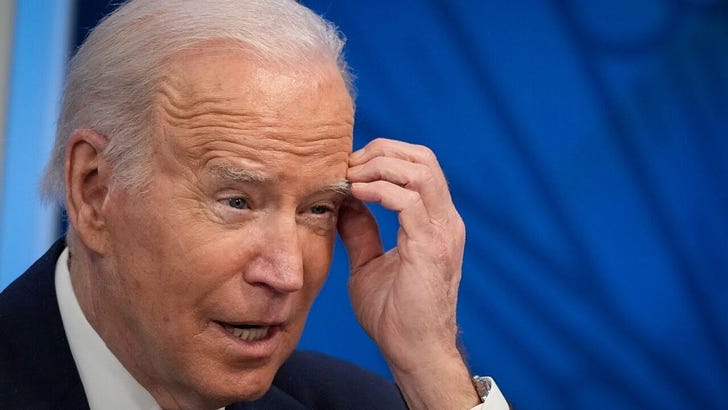Double crisis: Ukraine and US leadership
60 years on from the Cuban missile crisis, a repeat - but without a strong President
It’s 1962 again: nuclear war is threatened, but this time the US President may not be capable of restraining his aggressive underlings.
Oval Office, October 19, 1962 10 a.m.: the Joint Chiefs of Staff
‘… unanimously agreed on a minimum of three steps: a surprise [bombing] attack against the known missile sites, continued surveillance, and a blockade to prevent reinforcements from entering Cuba. […] The chiefs’ objective was to be in the best position to fight a war, while the president’s aim was to select the strategy that was least likely to start a war. The chiefs assumed that a prompt military response (bombing and invasion) would coerce the Soviets, but the president believed it would provoke them to respond in kind.’
World War Three might well have erupted anyway, had it not been for another restraining hand on the Russian side. Eight days after the above Oval Office meeting, a Soviet submarine submerged near Cuba was being depth-charged by US forces with the intention of forcing it to surface; what the Americans did not know was that the sub had a nuclear torpedo and, thinking that the depth charges were lethally intended, the captain was all for going out in a blaze of glory: ‘We’re gonna blast them now! We will die, but we will sink them all – we will not become the shame of the fleet.’ That decision required the agreement of three senior officers; two were for it, but the world is indebted to the third, Vasily Arkhipov, who refused.
Is President Biden up to handling military hotheads, as the confrontation in Europe intensifies? It is widely thought that his mental condition is deteriorating, to the point where he cannot even command attentive respect in a White House gathering (5 April 2022):
Like Nature, political power abhors a vacuum and we have to worry about who is taking control behind the scenes, and whether as sixty years ago their groupthink is leading us to potential disaster.
Worse still, should the President be officially deemed unfit for his office, is the seemingly weak or unstable people who are next in line to take over the role.
Kamala Harris, the Vice-President, has been called lazy, incompetent and ‘unable to think on her feet’ by Democrat-supporting US author Lionel Shriver. Could Harris rein in the Joint Chiefs of Staff?
Third on the succession list is the Speaker of the House of Representatives, Nancy Pelosi. Aged 82, Pelosi is three years older than the President and although her position requires her to be ‘impartial’ she seems incapable of controlling her overt bias towards her political party, ostentatiously ripping up a copy of President Trump’s State of the Union address live on TV behind him (February 2020); and as President Biden gave his own two years later, making a very odd display of grinning and knuckle-rubbing that makes us wonder whether she too, like Biden, may be developing some mental affliction:
At this perilous time the world needs America’s leadership to have strength in depth; it seems we have the exact opposite.



